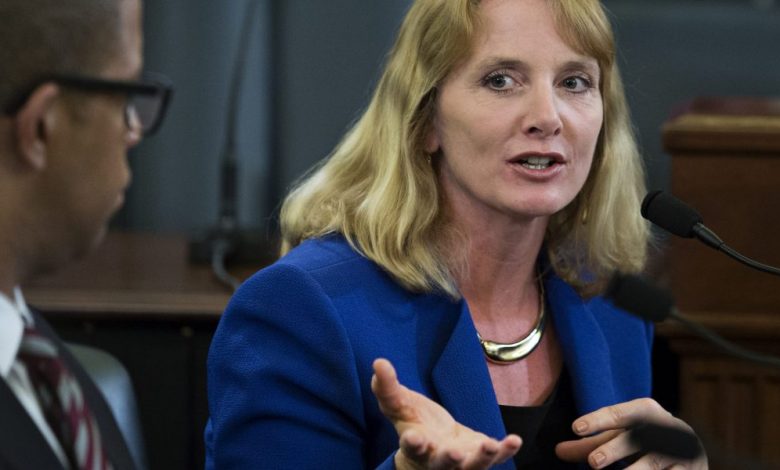Engineer and Tesla critic warns of technology for self-driving cars

As more automakers put their self-driving vehicle models on the road, experts are sounding the alarm that some of these cars may be doing drivers more harm than good.
Elon Musk’s Tesla won’t be the only game in town when it comes to self-driving cars for the next few years. The number of cars in the world with autonomous driving capabilities is projected to rise from 20.3 million in 2021 to 62.4 million in 2030, according to a recent report by a market research firm, and newer companies like Tesla and Uber will be accompanied by a growing array of traditional automakers such as BMW, Mercedes-Benz and General Motors, who want to bring their own self-driving concepts onto the market in the next few years.
But as the market grows, questions are also being raised about the safety standards of autonomous vehicles, with some arguing that the next-generation cars could pose a hazard to the people behind the wheel.
People can feel so comfortable in a self-driving car that they start “trusting the technology,” said Missy Cummings, an engineering professor at George Mason University and a former safety adviser with the National Highway Traffic Safety Administration (NHTSA). New York Times in an interview published on Wednesday.
Cummings has called for and called for stricter regulation for self-driving cars for years a public entrance with Musk and his legion of online supporters on the subject in 2021. When Cummings was named safety advisor to NHTSA, a position she held for the next year, Musk was wrote on Twitter that her track record was “extremely biased towards Tesla.”
In an interview published earlier this month on George Mason University’s website, Cummings said she was “not against Tesla” but against the irresponsible implementation of new technology. “I just hate bad technique. And if you have bad technology that’s really dangerous, I’ll bring it to your attention,” she said.
Now she warns that behind the wheel of an autonomous car, drivers can become careless and put themselves at greater risk of speeding.
“They make the cars race. And they get into accidents that seriously injure or kill them,” she said.
A problematic industry
Between July 2021 and May 2022, there were 392 accidents involving cars equipped with autonomous driving technology, including five seriously injured and six fatalities, according to NHTSA. Tesla vehicles were involved in 273 of these accidents, five of which were fatal.
In addition to the reported accidents, drivers have reported multiple instances of phantom braking when faulty sensors detect nonexistent objects and cause Tesla cars on autopilot to stop or change speed while driving.
Since August 2021, the NHTSA has been investigating Tesla, specifically its Autopilot self-driving feature. Last June, the probe was upgraded to “technical analysis” status, which would expand its scope and allow NHTSA to require Tesla to recall vehicles. Last month, NHTSA deputy chief Ann Carlson told reporters the investigation was moving “rapidly” and that the agency had “invested a lot of resources.”
On Thursday, Tesla recalled every vehicle equipped with the company’s experimental “Full Self-Driving” software — more than 360,000 — the NHTSA said. The recall notice applies to some Model S, Model X, Model Y, and Model 3 vehicles sold between 2016 and 2023. The agency said the software “can cause accidents” as its behavior at intersections and occasional disregard for speed limits are issues that need to be addressed.
The tech could also have an issue with speed limits and “does not adequately account for the driver’s adjustment of vehicle speed to exceed advertised speed limits”.
Musk on Thursday tweeted a reply to someone who said there should be another word between the recall and the software update: “Absolutely. The word “recall” for an over-the-air software update is anachronistic and just plain wrong!”
Cummings and other road safety advocates have urged consumers to recognize that the self-driving technology offered by automakers today is not truly fully autonomous and drivers must remain vigilant even when self-driving features are enabled. Cummings also accused Tesla and other companies of overdoing autonomous vehicle technology and creating greater risk for drivers.
“Car companies — meaning Tesla and others — are marketing this as hands-free technology,” she told the Just. “This is a nightmare.”
Tesla doesn’t have a US PR department and the company didn’t immediately respond wealth‘s request for comment. There was no response to this Just‘Request for comments
Musk has emphasized in past interviews that the further development of self-driving cars is the next big goal at Tesla.
“The overwhelming focus is on the full self-driving solution,” Musk said during an interview last June with an official Tesla Enthusiast Club. “That’s important, and that’s really the difference between Tesla, which is worth a lot of money, and basically zero.”
But Tesla, and any companies pushing into the self-driving car space, will have to tread more carefully if Cummings gets her way and convinces the government to start imposing more regulations on how autonomous vehicles are made and when drivers can use self-driving features.
“The technology is abused by people,” she said. “We need to make regulations that deal with that.”
Other road safety advocates have made similar appeals for regulators to do more. Ralph Nader, the activist lobbyist who was one of the first public figures to publicly call for better vehicle safety standards, also criticized Tesla and unregulated autonomous cars.
“I urge federal authorities to act immediately to prevent the growing number of fatalities and injuries from Tesla homicides using this technology,” he wrote in a statement last August.
Learn how to navigate and build trust in your organization with The Trust Factor, a weekly newsletter exploring what leaders need to succeed. Login here.



